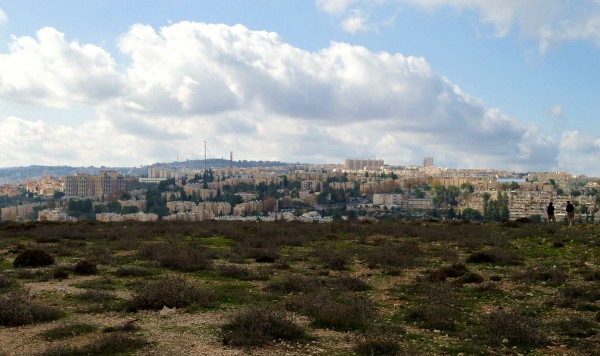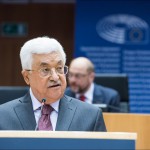“Then the peoples around them set out to discourage the people of Judah and make them afraid to go on building.” (Ezra 4:4)
On the tail of a July 1 report on the Israeli-Palestinian conflict by the Middle East Quartet, three of the Quartet’s four members — the United States, the European Union, and the United Nations — condemned Israel this past week for approving the construction of homes in Judea and Samaria.

Halled Yaffa Ariel was killed in her sleep by a Palestinian teen who broke through the security fence in her settlement.
The disputed construction permits were issued as a result of the two Palestinian terror attacks on June 30 and July 1 that killed Hallel Yaffa Ariel, 13, stabbed to death in her bed, and Rabbi Miki Mark, killed after his car was riddled with bullets. Mark’s wife, Chava, was wounded seriously in the attack and three of their children were wounded lightly to moderately. (Yeshiva)
A few days after Ariel’s stabbing, Netanyahu and Lieberman approved 42 homes to be built in Kiryat Arba, where the 13-year-old’s family lives, following an announcement by Netanyahu to make “special effort to strengthen the communities [in Judea and Samaria].”
Prime Minister Benjamin Netanyahu and Defense Minister Avigdor Liberman approved additional construction up to 600 new homes in the Arab neighborhood of Beit Safafa in eastern Jerusalem and 560 housing units in the Jewish-majority neighborhood of Ma’aleh Adumim, just west of Jerusalem.
Israel also approved 240 homes to be split between the eastern Jerusalem neighborhoods of Ramot and Har Homa, both largely Jewish by character.
However, the minister for Jerusalem Affairs, Ze’ev Elkin, said as more homes are built for the Arab community of Beit Safafa, the nearby Jewish neighborhood of Givat Hamatos should also receive building permits, since Beit Safafa is “essentially the Arab part of the future Givat Hamatos neighborhood.”
Elkin said Givat Hamatos, a hill that was first settled by Ethiopian Jews in 1991, is in need of “more than 2,000 [housing] units urgently.”
He argued that “those who want to maintain a Jewish majority in the capital cannot promote construction for the Arab population only.” (BIN)
Although many in the world community condemn Israel for expanding its settlements, claims that their construction activity is illegal are patently false. In truth, the territories are disputed; therefore, Israel is not building on land where another sovereign holds claim.
Despite that, US State Department spokesman John Kirby expressed “deep concern” at Israel’s building in the disputed territories, including eastern Jerusalem, which Israel claims is part of the undivided Jewish capital, having clear historical, archaeological, and religious claims to the city.
And no matter what agreement is arrived at in an effort to provide the Palestinian Authority its own land, Israel would also claim the Jewish neighborhood of Ma’aleh Adumim as part of the Jewish state. For that reason, any building of houses in this neighborhood is with the understanding that it will remain Israeli land.
Yet the US State Department regarded the expansion of the neighborhoods as “the latest step in what seems to be the systematic process of land seizures settlement expansions and legalization of outposts that is fundamentally undermining the prospects for a two-state solution.”
“This action risks entrenching a one-state reality and raises serious questions about Israel’s intentions,” Kirby added. “We oppose steps like these which we believe are counterproductive.”
Netanyahu rejected the US assessment, stating via the Government Press Office, “We are familiar with the American position. It is not new. It is also not acceptable to us.”
“With all due respect, it is neither the construction in Jerusalem nor that in Ma’aleh Adumim that make peace more remote. What prevents peace, first of all, is the constant incitement against the existence of the State of Israel within any borders, and the time has come for all the nations of the world to recognize this simple truth. There is also a second truth: The way to resolve conflicts is by direct negotiations,” he said.
Netanyahu stressed that while Jerusalem is willing to enter direct bilateral peace talks with the Palestinians with no preconditions, Ramallah is refusing to negotiate.
“These are the things that prevent peace, and not another couple of apartments (built) by the Ma’aleh Adumim municipality or in East Jerusalem,” he said.
A day before Kirby’s rebuke, UN chief Ban Ki-moon said he was “deeply disappointed” in Israel’s plans to build. Then, on Wednesday, the EU External Action Service also called “into question Israel’s commitment to a negotiated agreement with the Palestinians.” Both parties claimed that the “settlements are illegal under international law.”








